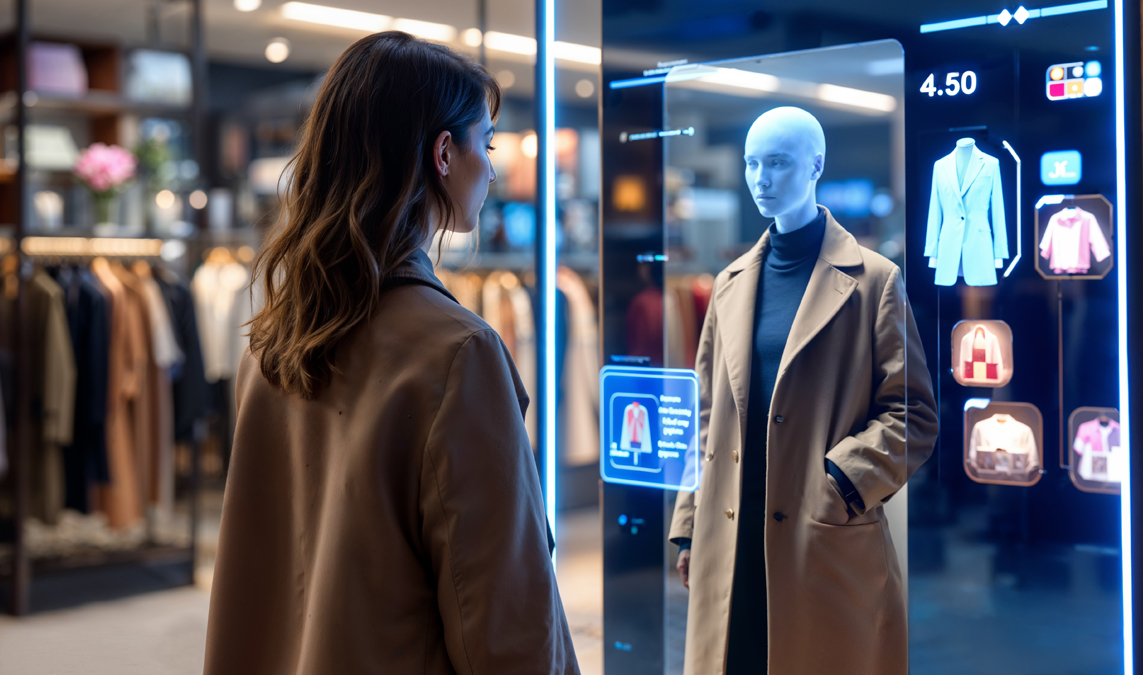Artificial intelligence is revolutionizing nearly every industry, and the retail sector is no exception. The rise of AI in retail trends has created a wave of innovation that is changing how businesses interact with consumers, manage operations, and optimize sales. From predictive analytics to automated customer service, artificial intelligence is driving smarter decisions and a more personalized shopping experience.
Personalization and Customer Experience
One of the most significant AI in retail trends is the rise of personalized shopping. Retailers are leveraging machine learning algorithms to analyze browsing behavior, purchase history, and demographic data. This allows them to offer personalized recommendations, targeted promotions, and even tailored homepages. For instance, major e-commerce platforms now use AI to suggest products that customers are most likely to buy, increasing both engagement and revenue.
Chatbots and virtual assistants, powered by natural language processing (NLP), are also enhancing customer service. These AI tools are available 24/7, quickly addressing questions, managing returns, and helping with product discovery. As this technology continues to evolve, expect to see even more natural and seamless interactions.
Inventory and Supply Chain Optimization
Another core focus of AI in retail trends is optimizing inventory and the supply chain. Machine learning can predict product demand with greater accuracy by analyzing factors like seasonal changes, regional preferences, and market trends. This helps retailers avoid overstocking or stockouts, improving efficiency and reducing costs.
AI-powered robotics are also being integrated into warehouses to assist with sorting, packing, and inventory management. These intelligent systems help retailers meet customer demand faster and more accurately, especially during peak shopping periods.
Visual Search and In-Store Innovation
Visual recognition technology is among the newer AI in retail trends gaining traction. Shoppers can now take photos of products and search for similar items online through visual search. Retailers using AI in their apps and websites are offering consumers a faster and more intuitive way to find what they’re looking for.
In physical stores, AI is being used to monitor foot traffic and analyze shopper behavior. Smart shelves and cameras can track which products get attention, how customers move through the store, and even measure emotion through facial recognition. These insights help optimize store layout and improve marketing efforts.
Dynamic Pricing and Fraud Prevention
AI in retail trends also includes dynamic pricing strategies that adjust in real time based on market demand, competitor pricing, and inventory levels. This approach allows retailers to stay competitive while maximizing profit margins.
Additionally, AI is enhancing fraud detection. With real-time monitoring of transactions and pattern recognition, AI systems can identify suspicious behavior and prevent fraudulent activities before they impact the business.
Sustainability and Ethical Sourcing
Sustainability has become a major consideration in modern retail. AI tools now help businesses reduce waste by optimizing energy usage, tracking carbon footprints, and ensuring efficient logistics. These systems can also verify product sourcing to ensure ethical practices, which aligns with the values of today’s socially conscious consumers.
This is one of the more recent AI in retail trends, as companies strive to integrate social responsibility into their operational models.

The Future of AI in Retail
Looking ahead, AI in retail trends are expected to grow in complexity and sophistication. Predictive analytics will become more precise, customer interactions will be more human-like, and operational automation will continue to expand.
Retailers that embrace AI will gain a significant edge over competitors, especially those that integrate AI not only as a tool but as a core component of business strategy. As consumers become more tech-savvy and demand personalized, convenient, and ethical shopping experiences, the role of AI in retail will only deepen.
Conclusion
The surge of AI in retail trends is redefining every aspect of the retail experience. From personalization and predictive analytics to fraud prevention and sustainability, AI is not just enhancing retail—it’s transforming it. Businesses that adopt and adapt to these trends are positioning themselves for long-term success in an increasingly competitive landscape.







